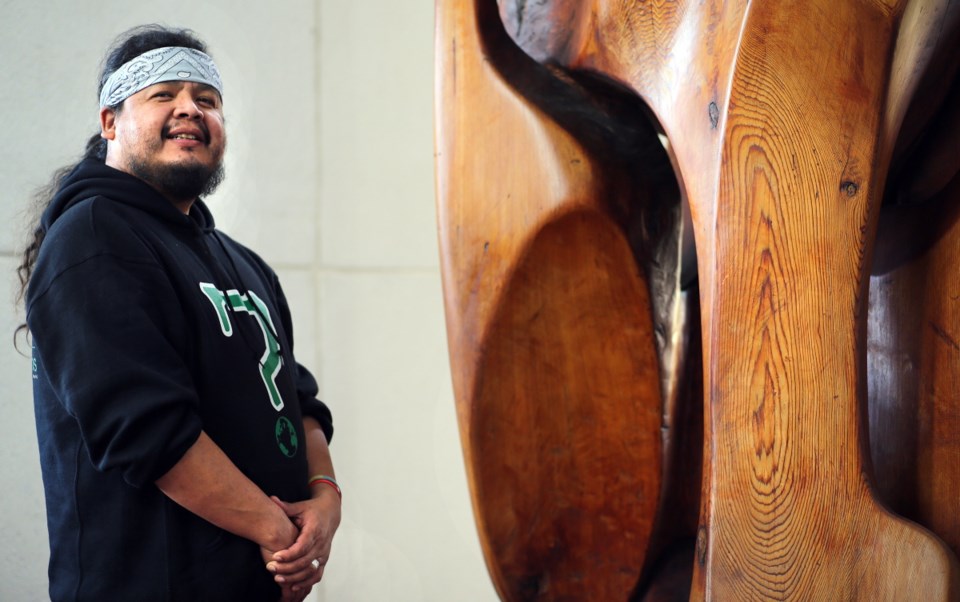A Victoria man who walked to Ottawa last year with little more than his sneakers, a grocery bag of supplies and a determination to honour residential-school victims will step out across the country again Saturday — this time to spread a message of non-violence.
“The walk to end violence is not just for the many murdered and missing women. It is for indigenous men and youth as well,” said David James Taylor, 42. “It’s important to bring back our core values and traditional teachings to deal with this. It affects everyone.”
According to a 2009 federal survey, aboriginal people are two times more likely than non-aboriginals to experience being victims of a violent crime. A 2014 report by the RCMP said that while aboriginal women account for four per cent of the population, they represent 16 per cent of murdered women cases and 11.3 per cent of missing women from 1980 to 2012. Statistics Canada noted aboriginal men represented 17 per cent of male murder victims in the same period.
Taylor is an Ojibway from the Curve Lake First Nation in Ontario. He moved to Victoria with his wife and teenage son a few years ago and works part-time as a First Nations education assistant for School District 63. He said he was influenced by his grandfather’s teachings and was inspired to walk across the country last year by a dream in which his grandfather visited him.
“He taught me so much about love and respect and being a First Nations man,” Taylor said.
As Taylor visited aboriginal communities across the country, hundreds came out to greet him — offering meals and places to sleep and organizing fundraising events. He had no corporate sponsorship and relied on money transfers from friends and strangers to help him along the way. His son set up a Facebook page to follow the journey.
Taylor said one of the most meaningful moments was when he received prayer ties from elders to take as an offering for the sacred fire at the closing events for the Truth and Reconciliation Commission in Ottawa. Prayer ties are made up of tobacco wrapped in cloth. A person’s prayers or intentions are tied into the cloth.
“They kept me grounded on my journey. It was a way for me to carry everyone with me,” Taylor said. “When I reached Ottawa, my arms were full. It was very powerful.”
Taylor said he asked the Creator for guidance on what to do next and at the end of the ceremony, several elders and other young men approached him saying they needed to do something to end violence in their communities. A friend pitched the idea of another walk.
“I said, ‘Let me go home and rest first. I just walked 4,600 kilometres,’ ” Taylor said. Now, nearly one year later, his friend and his friend’s partner have come to Victoria so they can walk the journey together. This time, they will have support along the way, with a volunteer driving an RV where they can rest and sleep.
Taylor and his team plan to walk about 30 kilometres a day, stopping in many of the same communities he visited last year. He has contacted friendship centres, community centres and schools to organize events to discuss violence and traditional teachings. The group plans to reach Ottawa in about five months, where they will hold a ceremony and celebration. He said that while he does not have much faith in the current federal government, he has high hopes for leadership from other political parties.
“I am non-partisan but the Harper government has already shown they are not interested in this issue, so I’m hoping there’s a new government that takes notice,” Taylor said.
Taylor has set up a web page to raise funds at gofundme.com/ walktoendviolence.



